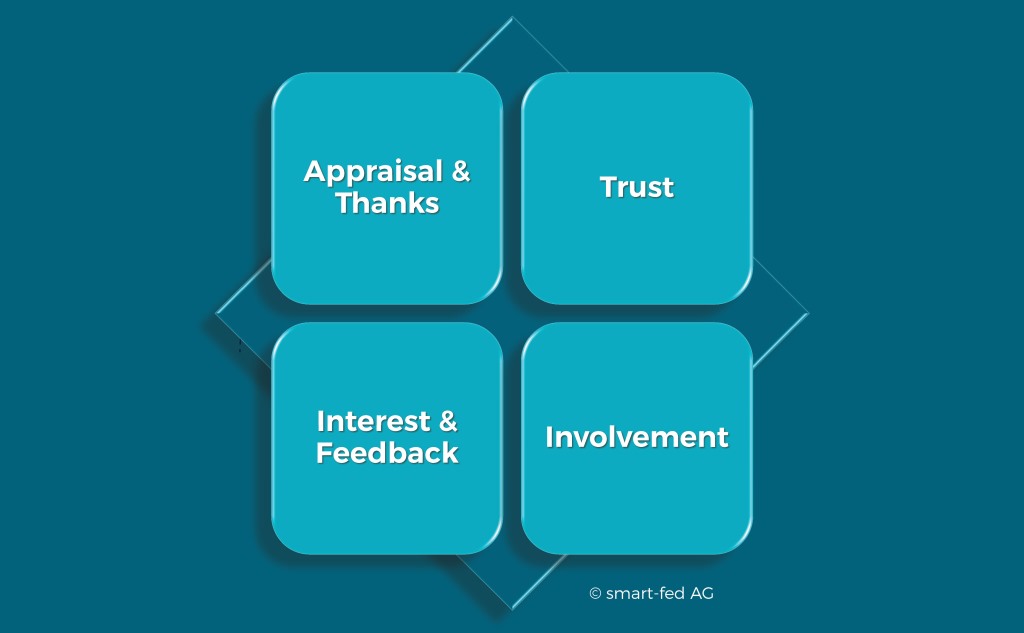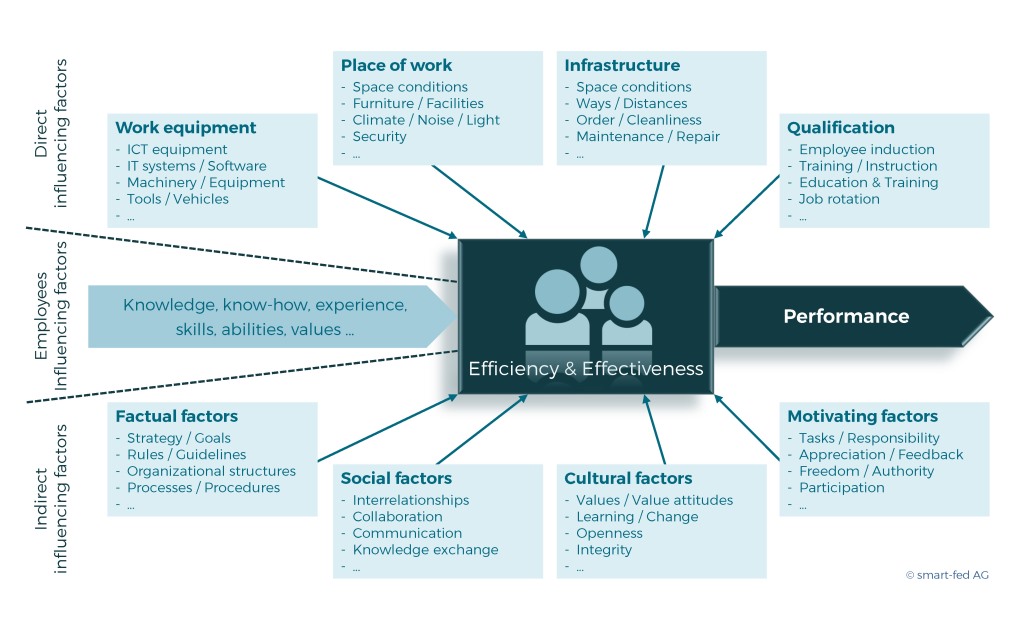A strong corporate culture
What does it look like?
This question is often discussed controversially in many companies. What actually characterizes a “good” or “better” corporate or organizational culture?
A conflict that makes the different values and expectations within the organization visible.
For this reason, we should perhaps formulate the core question behind it a little differently.
What kind of culture does the company/organization need in order to become or remain successful?
After all, hardly any other aspect has more influence on a company’s success in the long term than its corporate culture. It is not without reason that Peter Drucker is often quoted with his famous phrase: “Culture eats strategy for breakfast.”
Which culture?
This question must neither be answered according to the principle of “make a wish” nor one-sidedly from the perspective of a single interest group.
Focusing purely on a “feel-good culture” for employees would be just as fatal here as focusing purely on a performance-related perspective.
Two factors in particular are of decisive importance when it comes to the influence of culture on corporate and organizational success.
a) Its impact on employee motivation and commitment.
b) Its impact on the company’s strategic success factors (see also Corporate culture – a driver for sustainable corporate success).
With regard to the aspect of “motivation and commitment”, it should be noted that employees in the individual sectors sometimes have very different expectations of the corporate culture.
Employees in finance, IT, healthcare and social services, industry or administration have a slightly different approach to their job and working environment.
Even if basic needs such as “appreciation” and “respect” are probably common to everyone.
Finding the truly relevant values for a “strong” and “success-oriented” corporate culture is therefore a process that must be carried out from two perspectives.
Firstly, what type of employees do we have or need for our company and what cultural values do they appreciate that motivate them and keep their commitment high?
Secondly, what are the strategic success factors of our company and which cultural values sustainably support them?
The answers to these questions provide the central core values for the company-specific organizational culture and organizational development.

Anchoring the culture
Finding and prioritizing the right values for a company is just one of the challenges.
Implementing cultural values in an organization is no less challenging.
Even if everyone in an organization is ultimately responsible for “living” the cultural values, it is above all the managers who make a decisive contribution to sustainably anchoring the defined values in the company. This is achieved through three basic principles of leadership.
1. Exemplify & Demand
All managers must base their decisions, actions and conduct on the organization’s established core values. They must also consistently demand that their employees adhere to these values.
2. Sanctioning
Members who regularly disregard the organization’s core values must feel that their behavior, actions and decisions will not be tolerated. Whatever the consequences and regardless of who is affected.
3. Appreciation
Members who consistently live the organization’s core values should receive appreciation and recognition for this. Appreciation from superiors or an employee appraisal that includes cultural values as evaluation criteria can often be enough of a sign.
It remains to be seen whether special “cultural events” are also needed, where managers and employees can discuss cultural development or change. However, this can be very useful, at least in the case of major changes.
⇒ Author: Martin Mechlinski / SMART FED
A strong corporate culture
What does it look like?

This question is often discussed controversially in many companies. What actually characterizes a “good” or “better” corporate or organizational culture?
A conflict that makes the different values and expectations within the organization visible.
For this reason, we should perhaps formulate the core question behind it a little differently.
What kind of culture does the company/organization need in order to become or remain successful?
After all, hardly any other aspect has more influence on a company’s success in the long term than its corporate culture. It is not without reason that Peter Drucker is often quoted with his famous phrase: “Culture eats strategy for breakfast.”
Which culture?
This question must neither be answered according to the principle of “make a wish” nor one-sidedly from the perspective of a single interest group.
Focusing purely on a “feel-good culture” for employees would be just as fatal here as focusing purely on a performance-related perspective.
Two factors in particular are of decisive importance when it comes to the influence of culture on corporate and organizational success.
a) Its impact on employee motivation and commitment.
b) Its impact on the company’s strategic success factors (see also Corporate culture – a driver for sustainable corporate success).
With regard to the aspect of “motivation and commitment”, it should be noted that employees in the individual sectors sometimes have very different expectations of the corporate culture.
Employees in finance, IT, healthcare and social services, industry or administration have a slightly different approach to their job and working environment.
Even if basic needs such as “appreciation” and “respect” are probably common to everyone.
Finding the truly relevant values for a “strong” and “success-oriented” corporate culture is therefore a process that must be carried out from two perspectives.
Firstly, what type of employees do we have or need for our company and what cultural values do they appreciate that motivate them and keep their commitment high?
Secondly, what are the strategic success factors of our company and which cultural values sustainably support them?
The answers to these questions provide the central core values for the company-specific organizational culture and organizational development.
Anchoring the culture
Finding and prioritizing the right values for a company is just one of the challenges.
Implementing cultural values in an organization is no less challenging.
Even if everyone in an organization is ultimately responsible for “living” the cultural values, it is above all the managers who make a decisive contribution to sustainably anchoring the defined values in the company. This is achieved through three basic principles of leadership.
1. Exemplify & Demand
All managers must base their decisions, actions and conduct on the organization’s established core values. They must also consistently demand that their employees adhere to these values.
2. Sanctioning
Members who regularly disregard the organization’s core values must feel that their behavior, actions and decisions will not be tolerated. Whatever the consequences and regardless of who is affected.
3. Appreciation
Members who consistently live the organization’s core values should receive appreciation and recognition for this. Appreciation from superiors or an employee appraisal that includes cultural values as evaluation criteria can often be enough of a sign.
It remains to be seen whether special “cultural events” are also needed, where managers and employees can discuss cultural development or change. However, this can be very useful, at least in the case of major changes.
⇒ Author: Martin Mechlinski / SMART FED









